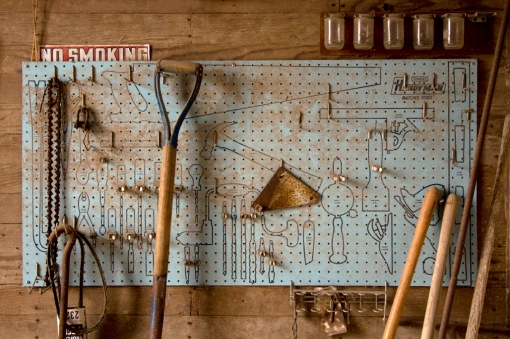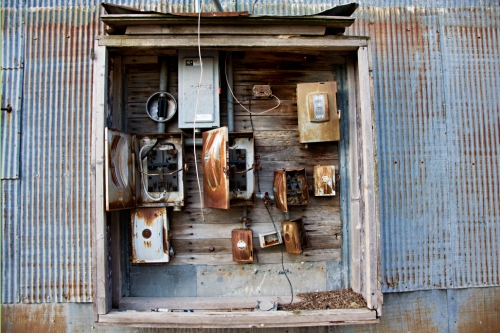Kitchen
Paulette doesn’t move from the sink when the screen door opens. Nor does she turn when she hears the shuffle of Edward’s boots behind her.
He clears his throat. “Well, honey, looks like we’ll be seven for dinner.”
“Does that include you?”
“I was fixin’ on it.”
“You keep those men on like you do, and I won’t be able to fix near anything.”
She mouths his response as he replies, “Good people help others in lean times, honey.”
“You keep those men on, your own family’s gonna be lean, too…Honey.”
“I reckon you’re right. But it’s the way I am.”
The way he is has turned Paulette’s kitchen and dining room into a makeshift restaurant. Only these customers don’t pay. She knows his intentions are right, but with grain sellin’ at 26 cents a bushel and drought that would make Elijah blush, Edward scratches just enough from the elevator to keep the bank pleased and these transient folk employed, housed and fed.
She walks to the icebox, wiping her hands on a green floral print apron. She’d killed and plucked four chickens yesterday, thinking the birds would last two days. She cuts as her mother had – down the middle, pop and chop both wings, same with the legs, and then separate the thigh from the breast. Seasoned now, the chicken rests on the wax paper as Paulette whisks the buttermilk. She grabs the coffee can from under the sink, pounds it on the counter a couple of times and watches as the liquid bleeds through.
As she dunks the pieces in the buttermilk and twists them in the peppered flour, Paulette doesn’t realize that the deep blue veins of these birds match the ones that spiderweb on her own ankles.




















